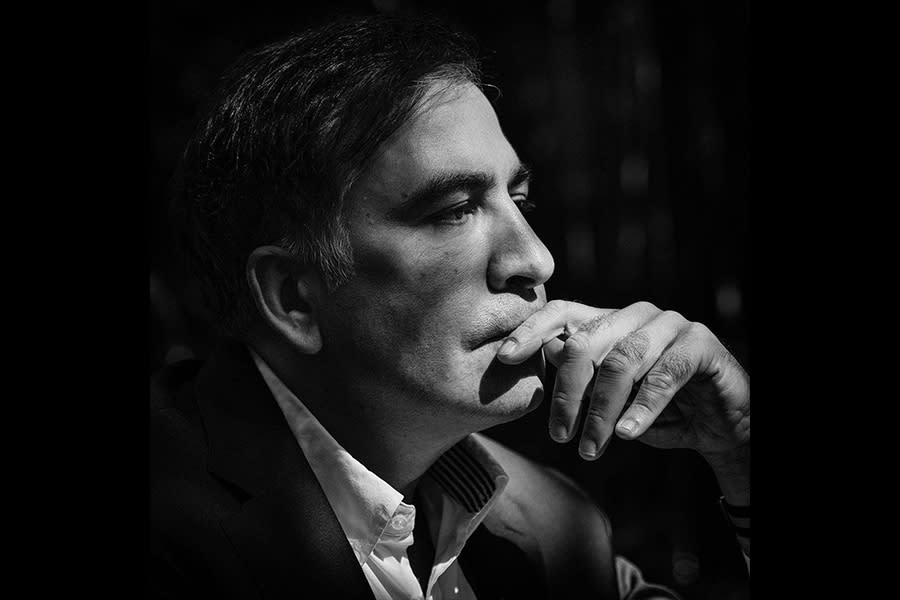ECHR rules prosecution cases against Georgia's Saakashvili are fair

- Oops!Something went wrong.Please try again later.
- Oops!Something went wrong.Please try again later.
The European Court of Human Rights (ECHR) has ruled there are no grounds to believe criminal proceedings against former Georgian President Mikheil Saakashvili are unfair, it said in a ruling on May 23.
Saakashvili is currently serving six years in prison in Georgia after being found guilty in absentia in 2018 on charges of ordering the beating of opposition lawmaker Valery Gelashvili in 2005. He was also given a three-year sentence for abuse of power charges for pardoning four police officers convicted of murder in 2008.
Saakashvili has maintained the charges were trumped up and appealed to the ECHR in 2020, saying the former was based on testimony by two of his political foes and in the latter, that his right to pardon them was not constitutionally limited.
He also claimed there was an ulterior motive in the prosecutions which he said were designed to prohibit him from participating in Georgian politics.
In its ruling, the ECHR declared unanimously that there were no breaches of his right to a fair trial in the way the Georgian courts had dealt with the evidence against him, or in the independence or impartiality of the judge in the case of the pardoning of police officers.
The ECHR also rejected his complaints of an ulterior motive in the prosecutions.
"The authorities’ honest desire was to bring the applicant to justice for his wrongdoing and that, in the absence of sufficient evidence to the contrary, the allegation of an ulterior motive is unsubstantiated," it said.
The ECHR said Saakashvili had the right to appeal to the Grand Chamber of the Court to consider further examination of the case.
Saakashvili, who was the president of Georgia in 2004-2013, carried out pro-Western reforms in his native country while in office.
After the rival Georgian Dream party came to power in Georgia in 2012-2013, Saakashvili moved to Ukraine.
Then-Ukrainian President Petro Poroshenko appointed him as head of an advisory reform council and governor of Odesa Oblast in 2015.
However, Saakashvili started exposing corruption schemes and fell out with Poroshenko. He was stripped of his Ukrainian citizenship, prosecuted, and then deported by the Ukrainian authorities in 2018 in what he believes to be an unlawful political vendetta.
In 2019 Zelensky was elected president and restored Saakashvili's Ukrainian citizenship. In 2020 Zelensky appointed the ex-Georgian president as head of Ukraine's Executive Council for Reforms.
Saakashvili returned to Georgia in 2021 in an effort to boost support for the opposition and was jailed.
Zelensky in February 2023 said he believed the "Georgian government is killing" Saakashvili after the media published photos that showed signs of his worsening health and rapid weight loss.
Saakashvili, a foe of Russian dictator Vladimir Putin, has accused Bidzina Ivanishvili, the Honorary Chairman of the ruling Georgian Dream party who is widely seen as the power behind the throne, of persecuting him on Russian President Vladimir Putin's orders.
The ruling Georgian Dream party has sought to maintain good relations with both Russia and the European Union. The country has been rocked by popular protests in recent weeks over the passing of a controversial "foreign agents" bill, which mirrors a similar law in Russia.
Read also: Explainer: What’s behind ongoing protests in Georgia?
We’ve been working hard to bring you independent, locally-sourced news from Ukraine. Consider supporting the Kyiv Independent.

